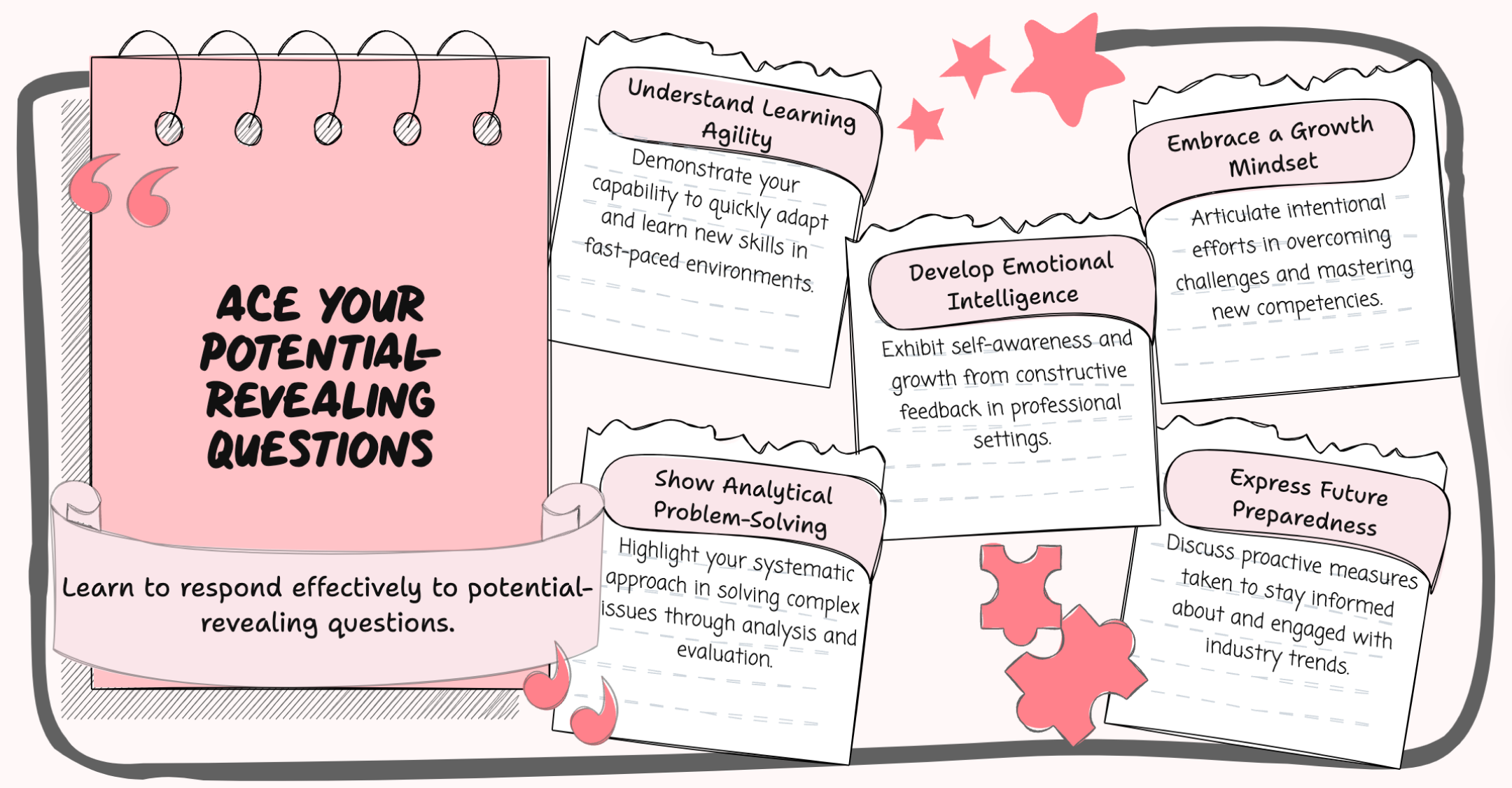ALorem ipsum dolor sit amet, consectetur adipiscing elit. Maecenas eu porta tellus. Mauris sit amet efficitur velit, vitae mollis ipsum. Cras a facilisis sem, vulputate accumsan diam. Praesent molestie, mauris nec dictum condimentum, sem metus lobortis orci, vitae auctor nunc ante et nunc. Phasellus dui ligula, hendrerit eget urna sed, porttitor sagittis libero. Nam tempor felis quis erat imperdiet pulvinar. Aenean euismod vitae nibh eu pretium. Cras quis elementum risus, nec ultrices felis. Nulla aliquet elementum erat et finibus. Quisque aliquam quam ultrices nibh congue sollicitudin
"So, tell me about your experience at Company X." You've rehearsed this answer countless times. But what if the most important interview questions aren't about your past at all? What if they're designed to uncover not what you've done, but what you're capable of becoming?
According to recent research, 94% of employers would keep an employee with the right mindset even if their technical skills needed development (LinkedIn, 2024). This is your opportunity to showcase value beyond your work history.

Example: "Tell me about a time when you had to learn a new skill quickly."
Weak Example: "I had to learn Photoshop for a marketing project, so I watched some YouTube tutorials and eventually figured out how to do the basics."
Strong Example: "When our client suddenly needed AR visualisations, I created a three-step plan: identified exactly what functionalities we needed, found a mentor in the gaming division, and practiced daily for two weeks while building a prototype that solved their specific problem."
Key Difference: Weak answers focus on the what. Strong answers reveal your systematic how.
Example: "Describe a situation with no obvious solution."
Weak Example: "We had an issue with customer complaints, so I created a new call handling process that seemed to reduce the problems."
Strong Example: "When customer complaints spiked despite no product changes, I analysed call recordings, surveyed front-line staff, and discovered our new phone system was dropping call context during transfers, causing customers to repeat information and become frustrated."
Key Difference: Weak answers jump to solutions. Strong answers demonstrate your analytical thinking path.
Example: "Tell me about receiving difficult feedback."
Weak Example: "My manager told me I needed to improve my presentation skills, so I worked harder on them and things got better."
Strong Example: "When my manager noted I was interrupting colleagues during meetings, I initially felt defensive but later recognised the pattern, installed a 'pause timer' app during meetings, and asked a trusted colleague for real-time signals, ultimately increasing team participation by 40%."
Key Difference: Weak answers show compliance. Strong answers demonstrate growth and self-awareness.
Example: "Describe something you were initially poor at but mastered."
Weak Example: "I wasn't good at Excel when I started, but with time and practice, I eventually got much better at it."
Strong Example: "After my first data analysis presentation was criticised for being too technical and unfocused, I joined a visualisation workshop, studied three industry-leading analysts' techniques, practiced with peer feedback, and eventually developed a presentation framework that was adopted as our department standard."
Key Difference: Weak answers focus on natural improvement. Strong answers reveal your intentional development system.
Example: "What industry trends excite you, and how are you preparing?"
Weak Example: "I'm interested in artificial intelligence and machine learning, and I try to read articles about them when I can."
Strong Example: "I'm tracking how blockchain is transforming financial verification processes, completing a certification in distributed ledger technologies, and have already implemented a small proof-of-concept with our account reconciliation team that reduced verification time by 62%."
Key Difference: Weak answers show passive interest. Strong answers demonstrate active preparation.
The PEARL Method provides a structured approach for answering potential-focused interview questions in a way that showcases your capabilities, not just your experience.

P - Problem: Clearly state the challenge you faced. Be specific and quantify when possible: "We faced a 28% decline in customer retention" rather than "Customers were leaving."
E - Exploration: Describe how you analysed the situation before acting. This critical step demonstrates your thoughtful approach and analytical skills. What information did you gather? Who did you consult? What factors did you consider?
A - Action: Detail the specific steps you took, emphasising your personal contribution even in team settings. Focus on your decision-making process and initiative.
R - Result: Quantify your impact with specific metrics. Compare "engagement improved significantly" to "we achieved a 32% increase in user retention within three months."
L - Learning: This is where you differentiate yourself as a high-potential candidate. Share what you learned and how you've applied these insights since, demonstrating your growth mindset.
Example:
Question: "Tell me about solving a complex problem with limited resources."
Weak answer: "I built a new dashboard when we needed better reporting. Everyone loved it."
Strong PEARL answer:
"When our marketing team was spending 15 hours weekly compiling campaign data (Problem), I analysed the workflow and discovered 40% of collected metrics weren't actually used for decisions (Exploration). I taught myself Python to build automated data extraction scripts and created a centralised dashboard using free tools (Action). This reduced reporting time by 80% and improved campaign performance by 24% (Result). I've since applied this 'do more with less' approach to other challenges, always asking what can be eliminated before adding new solutions (Learning)."
By using PEARL in your interview preparation, you'll develop compelling examples that demonstrate your potential, not just your past.
Employees with high learning agility outperform peers by up to 30% during times of change (CEB Global, 2022). When you approach your career with a potential mindset, you:
At WCFCAcademy, our Interview Mastery Programme helps you showcase your true potential through sophisticated preparation techniques. Visit www.wcfc.academy to learn more.
“Raesent molestie, mauris nec dictum condimentum, sem metus lobortis orci, vitae auctor nunc ante et nunc ligula”



Your potential is infinite. Our mission is to activate and unleash it in the right environment.